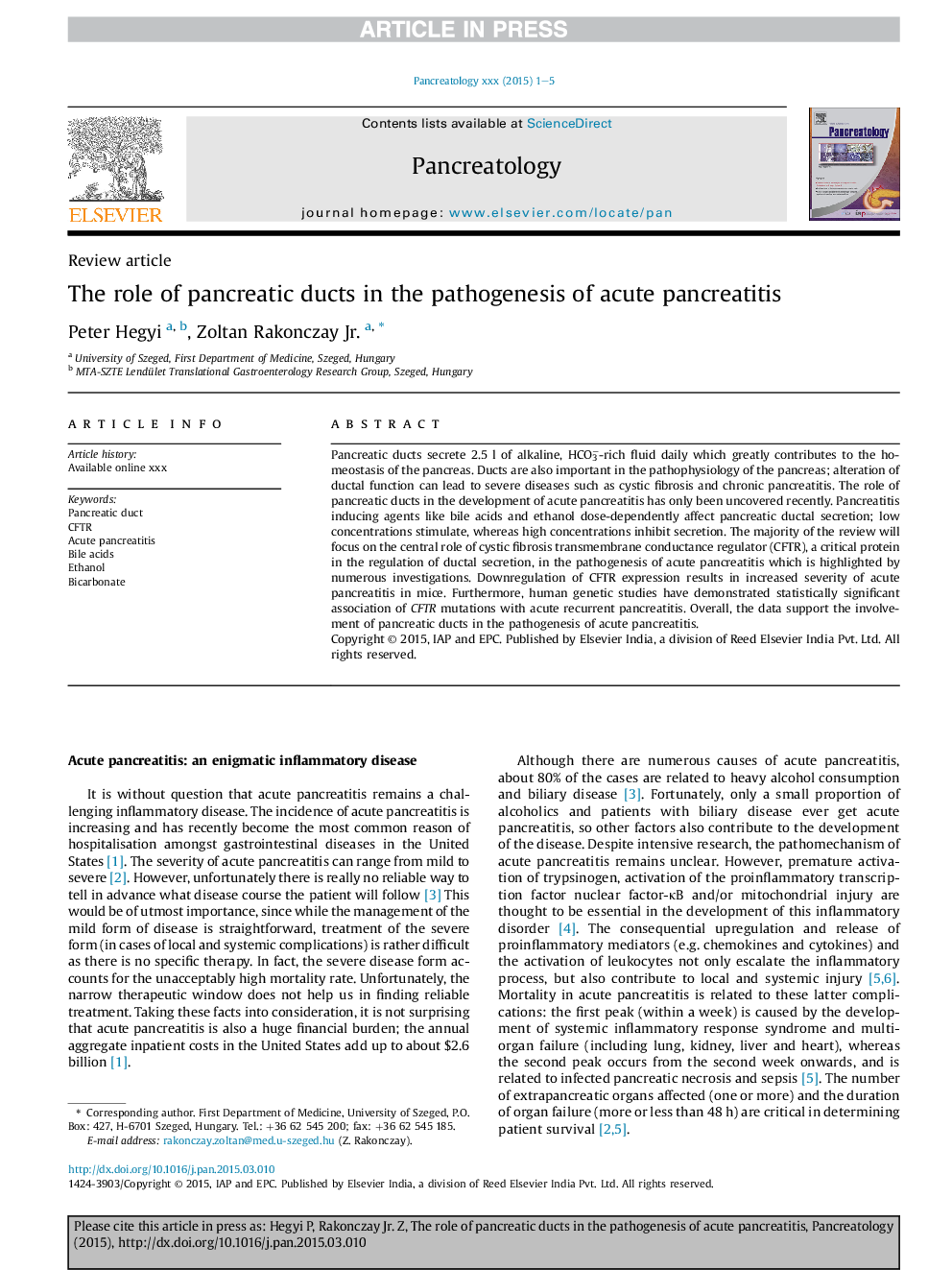| Article ID | Journal | Published Year | Pages | File Type |
|---|---|---|---|---|
| 3316762 | Pancreatology | 2015 | 5 Pages |
Abstract
Pancreatic ducts secrete 2.5Â l of alkaline, HCO3â-rich fluid daily which greatly contributes to the homeostasis of the pancreas. Ducts are also important in the pathophysiology of the pancreas; alteration of ductal function can lead to severe diseases such as cystic fibrosis and chronic pancreatitis. The role of pancreatic ducts in the development of acute pancreatitis has only been uncovered recently. Pancreatitis inducing agents like bile acids and ethanol dose-dependently affect pancreatic ductal secretion; low concentrations stimulate, whereas high concentrations inhibit secretion. The majority of the review will focus on the central role of cystic fibrosis transmembrane conductance regulator (CFTR), a critical protein in the regulation of ductal secretion, in the pathogenesis of acute pancreatitis which is highlighted by numerous investigations. Downregulation of CFTR expression results in increased severity of acute pancreatitis in mice. Furthermore, human genetic studies have demonstrated statistically significant association of CFTR mutations with acute recurrent pancreatitis. Overall, the data support the involvement of pancreatic ducts in the pathogenesis of acute pancreatitis.
Related Topics
Health Sciences
Medicine and Dentistry
Gastroenterology
Authors
Peter Hegyi, Zoltan Jr.,
